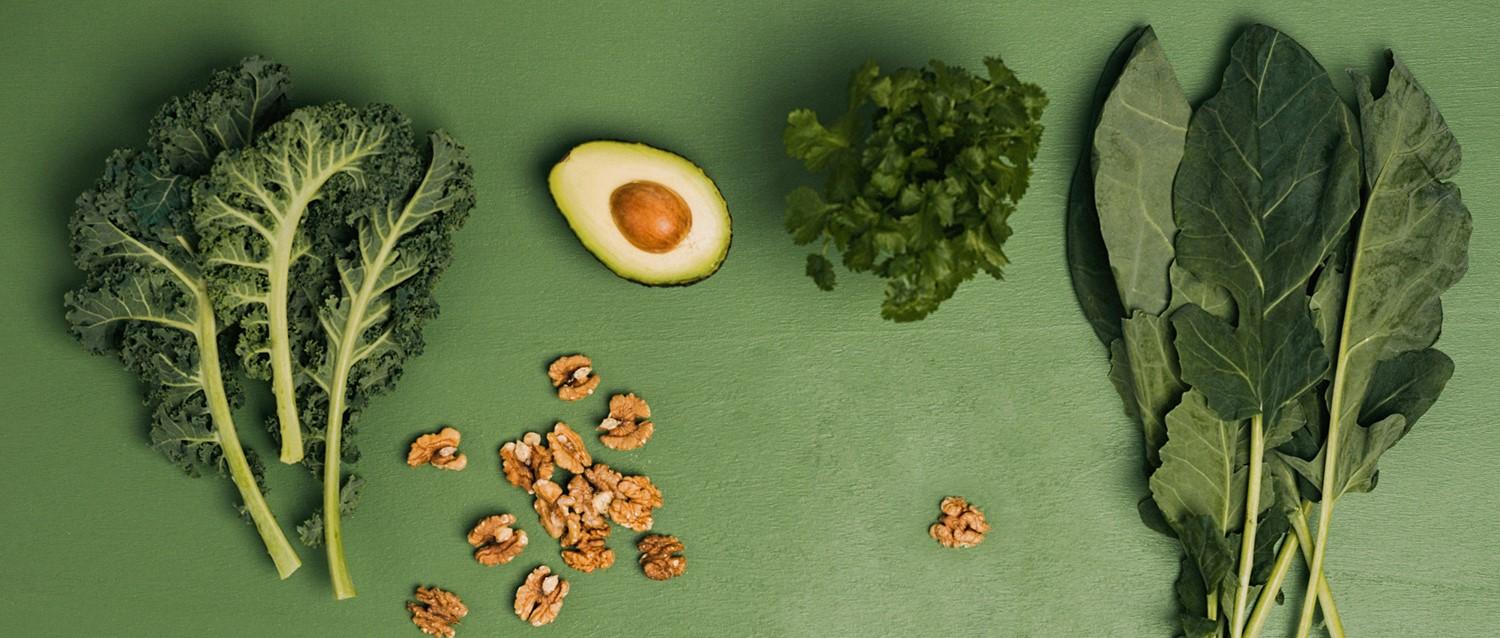
What is the Volumetrics diet, and should you try it?
Peer reviewed by Dr Colin Tidy, MRCGPAuthored by Victoria RawOriginally published 3 Nov 2025
Erfüllt die Anforderungen des Patienten redaktionelle Richtlinien
- HerunterladenHerunterladen
- Teilen Sie
- Sprache
- Diskussion
At its core, the Volumetrics diet is about eating more food with fewer calories, so you feel fuller for longer. This idea might sound appealing, but like many diets that make big promises, it comes with pitfalls. While it does offer some health benefits, the Volumetrics approach may not be the best fit for your long-term wellbeing.
In diesem Artikel:
Lesen Sie unten weiter
What is the Volumetrics diet?
The Volumetrics diet, developed by Dr Barbara Rolls, focuses on eating foods that provide the volume of a hearty meal but with fewer calories. The idea is to feel satisfied by eating more food in terms of weight, while actually consuming fewer calories than a typical meal of the same size.
Helena Barham-Coppola, nutritional therapist and founder of Nourish&Be, London, UK shares a simple snapshot of what a Volumetrics-style meal or snack might include.
“For example, 50 calories of crisps would be around 10 grams, or a small handful," she says. "50 calories of watercress, on the other hand, would be around 450 grams - so 4-5 supermarket bags. A mountain of greens in comparison.”
Barham-Coppola goes on to explain that the Volumetrics diet groups foods into four categories.
Low-calorie-density foods - examples include non-starchy vegetables, fat-free yoghurt, and broths.
Foods to eat in moderation - including skinless chicken or turkey, lean cuts of beef or pork, lentils, beans, pulses, whole grains, and starchy vegetables, such as beetroot and sweet potatoes.
Foods best enjoyed in small portions - for example, fatty meats and fish, ice cream, whole milk, cheese, pasta, and bread.
Foods to eat sparingly - such as nuts, seeds, oils, and fast food.
Volumetrics diet meal plan
Volumetrics meal plans can vary widely from person to person. This is because the approach focuses on lowering calorie density rather than restricting or prescribing specific foods for health benefits.
Barham-Coppola outlines what a day on a Volumetrics-style meal plan could look like:
Breakfast - fat-free yoghurt, blueberries.
Snack - air-popped corn or apple slices, and a small amount of nut butter.
Lunch - grilled chicken breast, mixed salad, bell peppers, cucumber, one whole wheat pitta bread.
Snack - low-fat cottage cheese with carrots and cucumber sticks.
Dinner - steamed cod with broccoli and sweet potatoes.
Helena Barham-Coppola, Nutritional Therapist, Nourish&Be, London, UK

The pros and cons of a Volumetrics diet
Back to contentsThe Volumetrics diet, while promoting weight loss, offers several general health benefits. By encouraging a higher consumption of vegetables, the diet helps to increase your intake of essential vitamins, fibre, and water, all of which support overall health.
However, Barham-Coppola does not recommend it as a healthy long-term practice, for reasons she outlines below.
Nutritional limitations and outdated advice
The Volumetrics diet has been around for a quarter of a century, pre-dating many recent advancements in nutritional science.
According to Barham-Coppola, the diet falls short in several areas:
Limited variety of plant-based foods - the diet misses an opportunity for better nutrition by not strongly promoting a wide variety of plant-based foods.
Reliance on low-nutrient food choices - some versions rely on products such as cereals, oatmeal, and brown sugar. Barham-Coppola suggests that low-fat yoghurt, often included, may not be the best way to boost your health.
Exclusion of healthy fats - treating oils and fats as foods to be eaten only sparingly can cause people to miss out on the important health benefits they provide.
"This diet was created in 2000, back when low fat was all the rage,” Barham-Coppola notes. “Nutrition has moved on since then."
Weight loss and practicality
If weight loss is your goal, the plan does have some merits. However, Barham-Coppola points out areas that may encourage unhealthy habits and even lead to feelings of isolation.
Complexity - the method of counting calories is viewed as potentially obsessive and effortful. This is especially true if you’re on a weight loss journey, which doesn’t need the added pressure of mathematical tasks.
Social and practical hurdles - the diet can make eating out extremely difficult, which may in turn increase your likelihood of social isolation.
Barham-Coppola suggests that the plan shouldn't be followed for more than a couple of weeks, and ideally should be supervised by a professional to ensure your basic nutritional needs are met.
Long-term concerns and health effects
Barham-Coppola does not recommend following this approach long-term. She raises concerns about its potential impact on your health over time and cautions that it could contribute to disordered eating patterns and feelings of social isolation.
“Following the diet long-term may reduce your intake of fat-soluble vitamins,” she says. “This includes the ever-important vitamin D, which so many people in the UK are already deficient in.”
Barham-Coppola adds that strict limitation on oils and fats overlooks:
Healthy fats - extensive research into the benefits of healthy fats, such as olive oil and its many antioxidants.
Nuts and seeds - nuts are a great source of vitamins and minerals, for example, brazil nuts and selenium, a nutrient Barham-Coppola notes many people in the UK are lacking.
Fish oils - limiting fish means limiting fish oils, specifically the crucial omega-3 necessary for keeping inflammation down.
Barham-Coppola concludes by warning that the Volumetrics diet would not be suitable for athletes, anyone pregnant, or breastfeeding.
She warns against being drawn to fad diets that promise weight loss without considering their effect on your overall health. While it may sound straightforward, the Volumetrics diet has not been extensively researched for its long-term clinical health outcomes.
“For example, there is so much research around the Mediterranean diet being one of the healthiest diets in the world," she says. “There is not a huge amount of research on the Volumetrics diet.”
Patient picks for Diet

Diät und Ernährung
Was ist die atlantische Diät?
The Atlantic diet is all about fresh, simple ingredients and social, sustainable eating. It shares many similarities with its popular southern cousin, the Mediterranean diet - but there are some key differences. Is the Atlantic diet as healthy as the highly praised Mediterranean diet? And why is it so good for both people and planet?
von Amberley Davis

Diät und Ernährung
Die Keto-Diät: Was ist sie und funktioniert sie?
Kohlenhydratarme Diäten werden in der Ernährungswelt immer beliebter, aber was ist mit ihrem extremeren Cousin, der ketogenen Diät? Sie wird von Hollywood-Promis angepriesen, um Fett zu verbrennen, den Appetit zu zügeln und den Blutzuckerspiegel zu regulieren. Aber ist sie wirklich so, wie sie angepriesen wird? Und wie sieht es mit den Risiken aus?
von Dr. Carrie Ruxton, PhD, Kinderernährung
Lesen Sie unten weiter
Artikel Geschichte
Die Informationen auf dieser Seite wurden von qualifizierten Klinikern geprüft.
Nächste Überprüfung fällig: 3 Nov 2028
3 Nov 2025 | Ursprünglich veröffentlicht
Verfasst von:
Victoria RawPeer-Review durch
Dr. Colin Tidy, MRCGP

Fragen, teilen, verbinden.
Stöbern Sie in Diskussionen, stellen Sie Fragen, und tauschen Sie Erfahrungen zu Hunderten von Gesundheitsthemen aus.

Fühlen Sie sich unwohl?
Beurteilen Sie Ihre Symptome online und kostenlos
Melden Sie sich für den Patienten-Newsletter an
Ihre wöchentliche Dosis klarer, vertrauenswürdiger Gesundheitsratschläge – geschrieben, damit Sie sich informiert, sicher und unter Kontrolle fühlen.
Mit Ihrer Anmeldung akzeptieren Sie unsere Datenschutzerklärung. Sie können sich jederzeit abmelden. Wir verkaufen Ihre Daten niemals weiter.